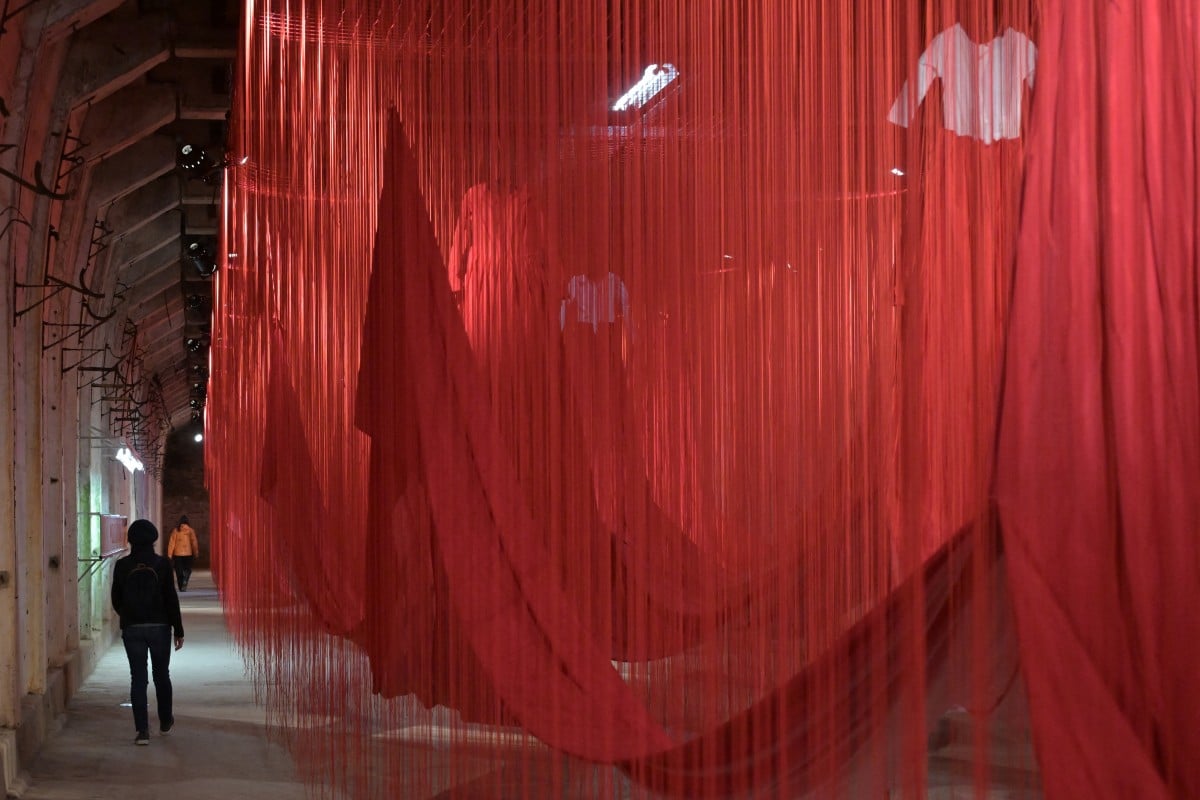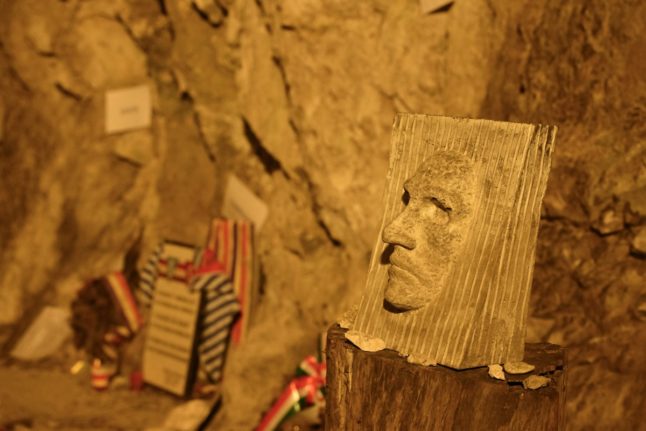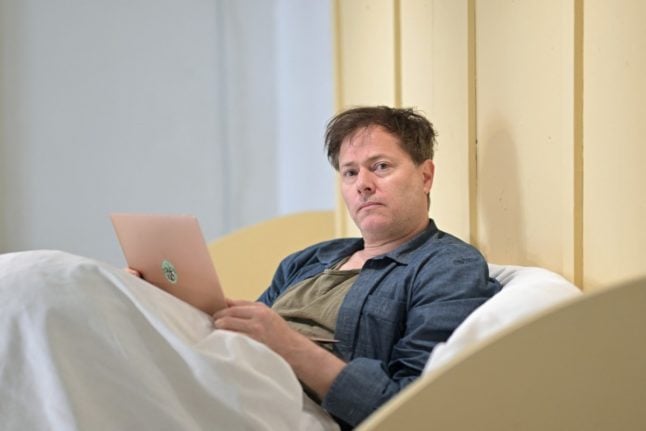“We can bring what happened here closer to people… It is possible to perhaps make the unspeakable more tangible for people,” Wolfgang Quatember, manager of the Ebensee camp memorial and museum, told AFP.
The Ebensee concentration camp was erected as a labour camp in the picturesque mountainous region around Salzburg in Austria, the country where Adolf Hitler was born and which he annexed in 1938.
More than 27,000 men from 20 different nationalities, a third of them Jewish, were imprisoned at Ebensee between 1943 and 1945.
The inmates were forced to dig underground tunnels to be used to research and develop missiles — plans which were never carried out.
More than 8,000 people died there, with the tunnels still today “proof of forced labour,” according to Quatember, who described the exhibition, which opened last week, as a “balancing act” to respectfully honour the memory of those at the concentration camp.
Conceived by internationally renowned Japanese artist Chiharu Shiota, 280 kilometres (170 miles) of red ropes have been suspended from the tunnel ceiling.
The ropes connect immense ghostly dresses, seemingly floating in the air like “an empty body”, symbolising “absence in the existence”, according to Shiota.

Shiota, 51, said she used red as the colour of destiny and fate in Japan and of blood, which carries “everything, like family or nationality or religion”.
Having lived in Germany for 26 years, Shiota said she was well aware of the concentration camps that Nazi Germany built but had not been to Ebensee until she was asked to exhibit there.
With Japan allied to Nazi Germany originally, Shiota told the daily Die Presse she regrets that her native country has not done more work of remembrance so far.
The show titled “Where are we now?” runs until September in the Alpine Salzkammergut lake region, which has been elected European capital of culture for this year.
Previously, the dark, cold tunnels also hosted an opera composed in the Theresienstadt ghetto, north of Prague, where Jews were detained during World War II.
“I had never dared to enter (the tunnels) before because it seemed oppressive… But this installation allowed me to take the step,” Monika Fritsch, a 60-year-old content creator who came to the inauguration of Shiota’s installation, told AFP.



 Please whitelist us to continue reading.
Please whitelist us to continue reading.
Member comments